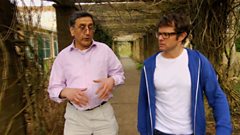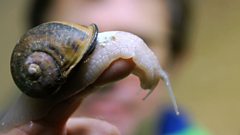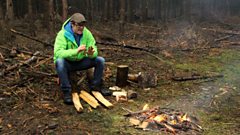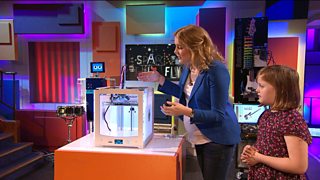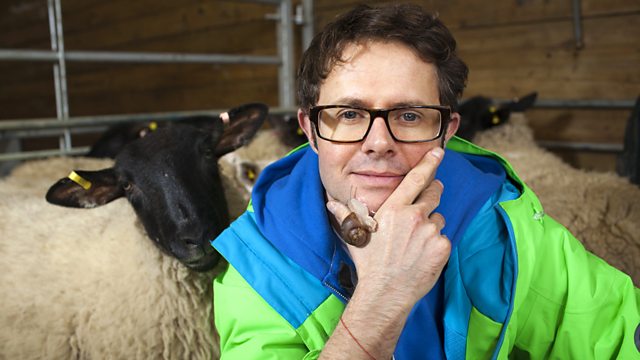
Key Stage 3
How maths is used in the real world to help create a sustainable future. Stefan Gates heads into the woods of Sussex to explore sustainable energy.
A new way of showing how maths is used in the real world to help create a sustainable future.
Stefan Gates meets people using maths to find innovative solutions to the ecological challenges of our age. From local food to food waste, recycling to rainwater harvesting, biofuels to biodiversity, this series highlights how maths is crucial to managing our environment.
In this episode targeted at Key Stage 3, Stefan heads into the woods of Sussex to explore sustainable energy and meets a group of students who use algebra to compare different types of energy.
He visits a snail farm in Dorset and compares lamb and snail meat by looking at area, fractions and ratios.
And he explores the maths of scientific discovery using concentrations in standard form and cumulative frequency graphs and interprets longitudinal data in a unique fungus trial at Swansea University.
Last on
Clips
-
![]()
Maths behind natural pesticides that help biodiversity
Duration: 09:44
-
![]()
Calculating the most efficient use of land to produce food
Duration: 09:07
-
![]()
Wood as a renewable energy source
Duration: 09:23
Credit
| Role | Contributor |
|---|---|
| Presenter | Stefan Gates |
Broadcasts
- Tue 27 Mar 2012 04:30
- Fri 27 Apr 2012 05:00
- Thu 31 May 2012 04:00
- Thu 5 Jul 2012 05:30
- Wed 12 Sep 2012 04:00
- Wed 3 Oct 2012 04:30
- Tue 11 Dec 2012 04:30
- Thu 24 Jan 2013 04:00
- Tue 5 Mar 2013 04:00
- Wed 24 Apr 2013 04:30
- Thu 31 Oct 2013 04:30
- Wed 1 Oct 2014 04:30
- Wed 28 Jan 2015 04:30
Featured in...
![]()
Learning Zone, Ages 11-13: STEM—Learning Zone
KS3. Short films about science, technology, engineering and maths for 11-13 year-olds.
